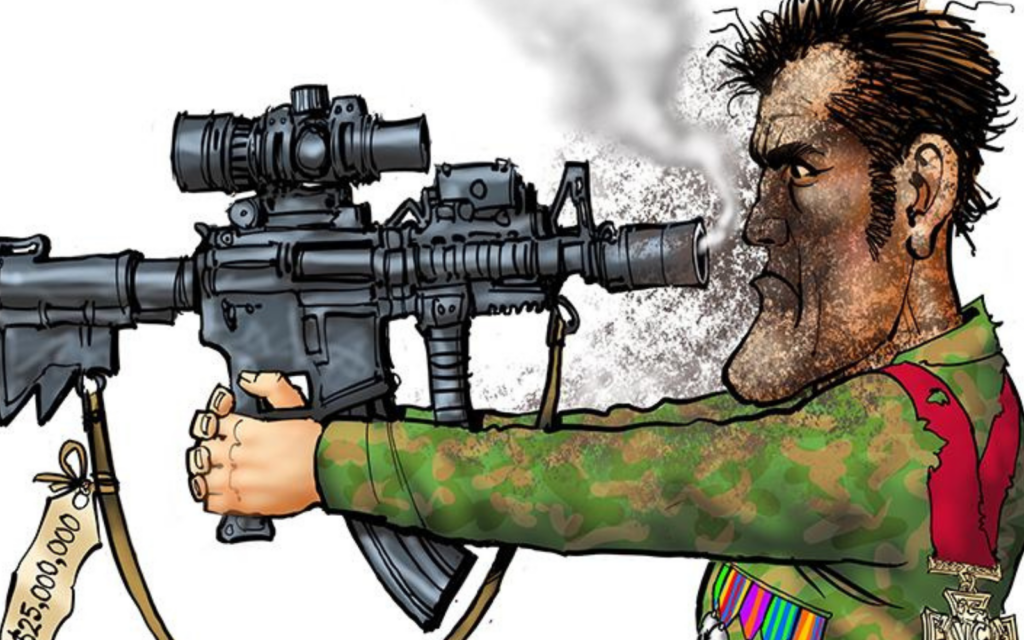Reporters were looking for trouble and they got it. They provoked a response from within the homeless community, thrusting cameras into the faces of those living rough and asking invasive, weighted questions, and then they carefully framed the resulting natural indignation as though it were out-of-control depravity.
It would be wrong to imply that they did this in a vacuum. Such stories are only effective because the public has a need for them; because we have a common desire to put a face to the frustrations and concerns, both economic and political, that we feel every day. But the media’s decision to offload upon the poor – to hurt those most need of help – isn’t just irresponsible. It is borderline sociopathic, a vicious attempt to drain out compassion and replace it entirely with a curated, semi-disguised disdain.
This is business as usual for mainstream media in our country. Although we live in the era of ‘post-truth’ reportage, the concern for Australians should not be that our reporters lack integrity: it should be that they lack empathy. Journalists are now in the target-painting business, and the pressure of the 24-hour news cycle means that each day must bring with it a new outrage – a new source onto which generalised anxieties can be projected.
This is the age of the artificial crisis, an age in which reporters and politicians have formed a closed loop of call-and-response cruelty. Responding to reports of Melbourne’s ‘homeless crisis’, Mayor Robert Doyle announced to the press that he planned to take a no-tolerance position in regards to the transient community.
“Police already have powers to arrest for obstruction, for drug use, for threatening or aggressive behaviour, and for begging, and I would like to see them make full use of those powers as well,” he said, responding to an issue framed, led and designed by the Australian media.
This is not a new phenomena, of course – not in this country nor internationally. Horror stories in which the poor are cast as villains remain astoundingly popular, and there is considerable economic value in news programs airing stories designed to turn our community’s most needy and vulnerable constituents into grubbing, money-hogging, selfish caricatures. Programs like A Current Affair have been peddling these narratives for decades, borrowing the tone of car-crash horrors like Jerry Springer and dressing up vigilante violence and rabble-rousing as though it were news.
Never mind that one of the main causes of homelessness is family violence – an issue uniformly ignored by politicians and the media alike. Never mind that homelessness is a largely fixable problem – that a greater investment in public housing, care programs and the creation of more jobs for the working class is not only achievable but barred only by the willingness of those in power to act.
Reporter Owen Jones, responding to England’s 2008 economic crisis in his book The Establishment put it best. “Politicians and media [have] worked almost hand in glove to promote the myth that people who should be held responsible for the nation’s multiple social and economic ills are those at the bottom of the pecking order, rather than those at the top,” he wrote.
This isn’t some conspiracy theory. The collusion between politicians and news media outlets isn’t directed by shadowy men in a boardroom, jointly deciding that the homeless and the poor should be thrown under the proverbial bus, time and time again. It is merely a mutually beneficial system, a naturally evolving partnership in which news sites get clicks and politicians get votes. And we, the media-consuming public, help it all happen.
The bottom line, ultimately, is this: we do have a homeless crisis, of course, but the issue is not that they are taking up space, or begging tourists for money. The issue is not the one pushed by media outlets looking to invoke cheap anger, or politicians trying to save face by blaming poverty on poor personal choices.
The issue is that they are abandoned and neglected by a system that refuses to treat the cause of homelessness but proves overly willing to punish those affected by it; by a system carefully controlled to deflect attention off ineffective systems and onto those crushed beneath the wheel of neoliberal ‘progress’.
The fact that media outlets in this country are incapable of depicting such a narrative – that to do so would be to question the very premise on which their security and prosperity rests – is a national tragedy, of which we should never stop being ashamed.







